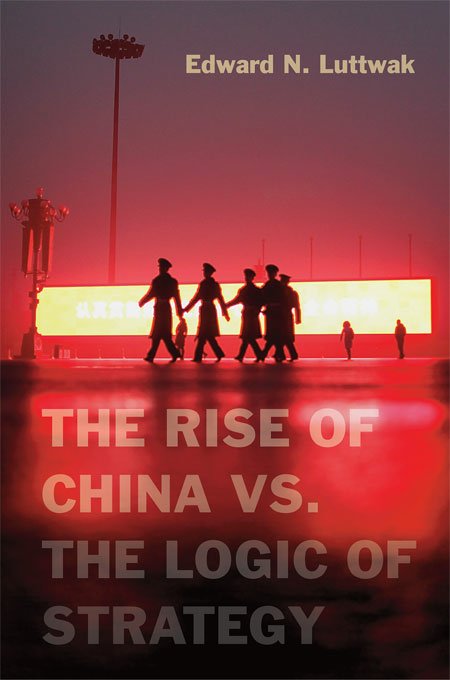Strategist sees skewed perspectives ahead during China’s rise

Edward N. Luttwak's new book, The Rise of China vs. The Logic of Strategy (Harvard University Press, November 2012), offers a valuable perspective on how others see China's rise. Without it necessarily being any fault of China's own, Luttwak argues, the inevitable logic of global strategy will turn other great powers against the country in order to forestall its rise.
Luttwak, a famous military strategist with a curious sideline as a freelance intelligence operative, is something of an academic provocateur. While a master of his own field, he is not a China specialist, and relies largely upon intuition, secondary sources, and occasional translation. As in his books on Roman and Byzantine military strategy, he likes to parachute into a field, stake out his position, and rile up the locals.
This book follows much the same pattern, although it talks of the strategic logic of the future, not the past.
Many people will find Luttwak's sweeping claims irritating or objectionable. He believes the US was suckered by the ideology of free trade into letting China "cheat" over currency and IPR rights, without taking into account the massive domestic benefits the US, and US consumers, realized from China's cheap labor.
The book predicts unavoidable strategic confrontation between the US and China, and assumes that both sides have no way to learn from their past errors. This is a typical mentality among many China observers, who are anxious about the uncertainties brought by China's rise.
In his new book, Luttwak describes China's "great state autism," which he defines as the tendency of major powers to concentrate on their domestic affairs, and to see others as only a mirror of themselves.
This is reminiscent of previous forecasts by other strategists that China will find itself rising in loneliness and isolation. These forecasts of China's "loneliness" and "isolation" are only to be expected. During its rise, China will lose some sympathy and appreciation from other players, and instead face their precaution and vigilance. This is an inevitable cost that an emerging power has to pay.
Luttwak falls into stereotypes on the one hand, but he is incisive and sharp on certain problems of China's strategic thinking on the other. He criticizes over-reliance on ancient Chinese strategic thought.
He describes "a stubborn faith in the superior strategic wisdom to be found in ancient texts ... remarkably undimmed by the actual record of Chinese history, with its repeated subjugations by relatively small numbers of primitive invaders."
Paradoxically, he points to the brilliance of Chinese strategists as one reason for their weakness; their strategies, he says, are designed for an intra-cultural context, like the Warring States Period (475 BC-221 BC), in which all sides had essentially the same methods and the same goals. Luttwak believes some of the same issues apply to China's modern diplomacy.